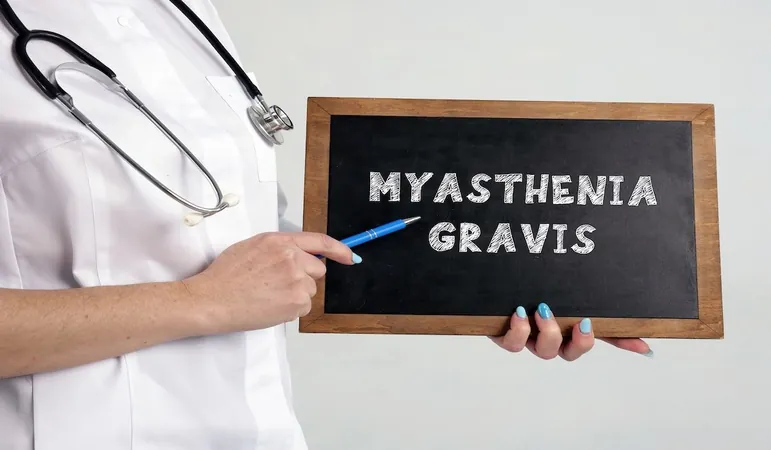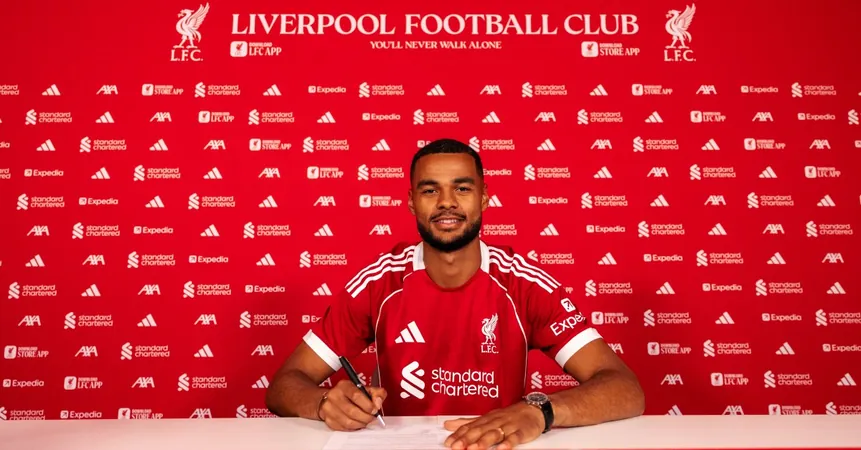
Revolutionary Treatment for Myasthenia Gravis: Rozanolixizumab Erases Fatigue and Weakness!
2025-08-22
Author: Yu
Rozanolixizumab Shines in Battling Myasthenia Gravis Symptoms
In an exciting breakthrough for patients grappling with myasthenia gravis (MG), rozanolixizumab has shown remarkable effectiveness in alleviating muscle weakness and fatigue, according to findings from the phase 3 MycarinG study (NCT03971422). This innovative therapy not only enhances the quality of life for sufferers but also offers valuable insights through the newly utilized MG Symptoms Patient-Reported Outcome (PRO) scales.
Real Relief for Patients!
The MG Symptoms PRO scales assess key areas such as muscle weaknes, fatigue, and weakness in bulbar, ocular, and respiratory muscles. These scales provide a comprehensive look at the impact of rozanolixizumab, a humanized IgG4 monoclonal antibody, on participants—a game changer in understanding patient experience.
Impressive Results Published!
Recent findings, published in the European Journal of Neurology, confirm prior studies showcasing the MG Symptoms PRO as a reliable measure of MG severity. The study authors emphasized, "These post hoc analyses highlight the MG Symptoms PRO's added value in tracking meaningful changes in symptoms post-treatment." Initial results were delivered through a randomized trial, with patients divided into groups receiving either 7 mg/kg, 10 mg/kg of rozanolixizumab, or a placebo.
Strong Correlations with Patient Experiences
Ninety percent of participants had anti–acetylcholine receptor antibody positive generalized myasthenia gravis (gMG), with substantial correlations noted between various symptom scales. For instance, the ocular muscle weakness scale showed a strong correlation of 0.78 with bulbar muscle weakness. Similarly, correlations were observed across numerous domains, demonstrating the comprehensive effectiveness of the treatment.
Quantifiable Improvements!
Outcomes further revealed that patients receiving rozanolixizumab generally reported better responses by day 43. Notably, a staggering 46.9% of those on the lower dose and 56.5% on the higher dose reported reduced muscle weakness fatigability, compared to just 28.1% with placebo. Additionally, 69% to 73% of those treated showed improvements in both the MG-ADL index and Quantitative MG scales.
An In-Depth Look at Patient Experiences
Diving deeper, the authors performed item-level analyses assessing various impairments like decreased vision and breathing difficulties. Their findings revealed that rozanolixizumab-treated patients reported significant relief in muscle weakness, fatigue, and bulbar weakness compared to the placebo group.
Raising the Bar in Measurement!
Utilizing the Rasch model, researchers noted that post-treatment, patients seldom reported symptoms of muscle weakness or fatigue. They highlighted that MG Symptoms PRO offers superior detail compared to existing measurement tools, paving the way for more targeted and effective treatments.
A New Era for Myasthenia Gravis Treatments!
Overall, while the study underscores rozanolixizumab's impressive capacity to improve life for those with myasthenia gravis, it also notes limitations relating to disease severity among participants. Nevertheless, this groundbreaking analysis represents a significant step forward in augmenting our understanding of gMG treatment efficacy.



 Brasil (PT)
Brasil (PT)
 Canada (EN)
Canada (EN)
 Chile (ES)
Chile (ES)
 Česko (CS)
Česko (CS)
 대한민국 (KO)
대한민국 (KO)
 España (ES)
España (ES)
 France (FR)
France (FR)
 Hong Kong (EN)
Hong Kong (EN)
 Italia (IT)
Italia (IT)
 日本 (JA)
日本 (JA)
 Magyarország (HU)
Magyarország (HU)
 Norge (NO)
Norge (NO)
 Polska (PL)
Polska (PL)
 Schweiz (DE)
Schweiz (DE)
 Singapore (EN)
Singapore (EN)
 Sverige (SV)
Sverige (SV)
 Suomi (FI)
Suomi (FI)
 Türkiye (TR)
Türkiye (TR)
 الإمارات العربية المتحدة (AR)
الإمارات العربية المتحدة (AR)